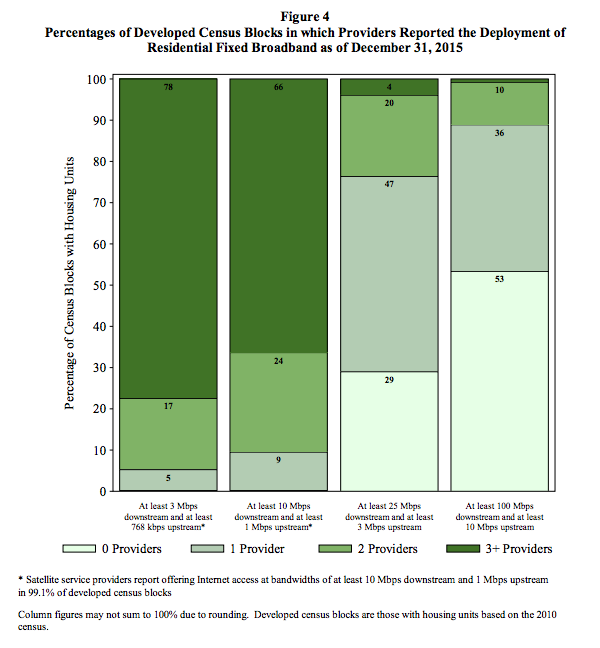https://arstechnica.com/tech-policy...ket-too-competitive-for-strict-privacy-rules/
The full article is worth looking at but the FCC is basically being disingenuous as fuck in the OP-ED they wrote in regards to in-home broadband availability by conveniently ignoring it. That being the basis of their argument everything just sort of rings hollow along with the second point made in the article about opting in or out on data collection through websites.
"Others argue that ISPs should be treated differently because consumers face a unique lack of choice and competition in the broadband marketplace," Pai and Ohlhausen wrote in their op-ed for The Washington Post yesterday. "But that claim doesnt hold up to scrutiny either. For example, according to one industry analysis, Google dominates desktop search with an estimated 81 percent market share (and 96 percent of the mobile search market), whereas Verizon, the largest mobile broadband provider, holds only an estimated 35 percent of its market."
...
Total market share is a relevant statistic in mobile because customers really do have a choice, from four major nationwide carriers and various resellers and regional carriers. In home Internet service, a similar nationwide market share stat would on the surface show even more diversity of broadband companies, as even the nation's largest home ISP (Comcast) doesn't reach 35 percent.
But for home Internet customers, the relevant point is whether they can choose from multiple providers at their home or apartment. And they frequently can't, since ISPs often avoid each other's territory.The latest FCC report on this topic found that 76 percent of developed Census blocks had either zero or one fixed ISP offering speeds at the FCC's broadband standard of 25Mbps downstream and 3Mbps upstream.

The full article is worth looking at but the FCC is basically being disingenuous as fuck in the OP-ED they wrote in regards to in-home broadband availability by conveniently ignoring it. That being the basis of their argument everything just sort of rings hollow along with the second point made in the article about opting in or out on data collection through websites.

